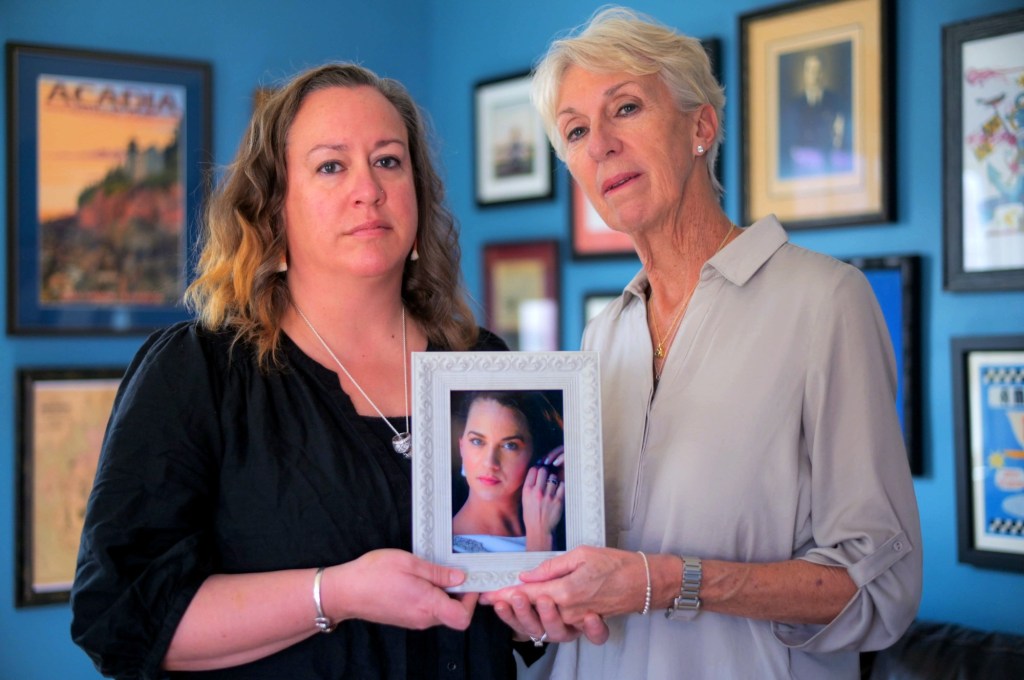There are traces of Andrea Kolbe all over her big sister, Kyra Vocci.
A long chain with Kolbe’s wedding ring — an ornate silver band — hangs close to Vocci’s heart, beside a locket engraved with Kolbe’s photo and fingerprint. Tattooed on Vocci’s forearm is a rainbow and a quote Kolbe liked: “There is a rainbow of hope at the end of every storm.”
“We called each other soul sisters,” said Vocci, her eyes glossy with tears.
In December, one day after Kolbe turned 35 and four months after she gave birth to her first child, she took her own life at her Long Island, New York, home. When Vocci got the call, she dropped to the floor and screamed so loud and for so long that her neighbors called police.
Before Kolbe died, she had been struggling with postpartum depression, a mood disorder characterized by persistent feelings of sadness, worthlessness, guilt and shame. The condition can cause new mothers to experience terrifying and unwanted thoughts about accidentally or intentionally harming themselves or their baby.
Postpartum depression is distinct from the “baby blues” — a mild and temporary form of depression experienced by most new moms that typically goes away within two weeks after they give birth. The mood disorder is more serious, and, while it’s less common, studies estimate that up to 15% of people who have a baby will experience it. Black women and those with a history of depression or bipolar disorder are especially at risk.
According to national and local experts, screening and treatment for postpartum depression remains lacking across the country. Until recently, there was no standardized strategy for collecting data on maternal deaths from suicide. Now, research suggests that nearly 1 in 5 maternal deaths in the country are due to suicide, making such deaths more common than those caused by postpartum hemorrhage or hypertensive disorders.
Lately, Vocci, of Towson, and her mother — Lisa Kolbe, who lives in Gaithersburg…
Read the full article here







